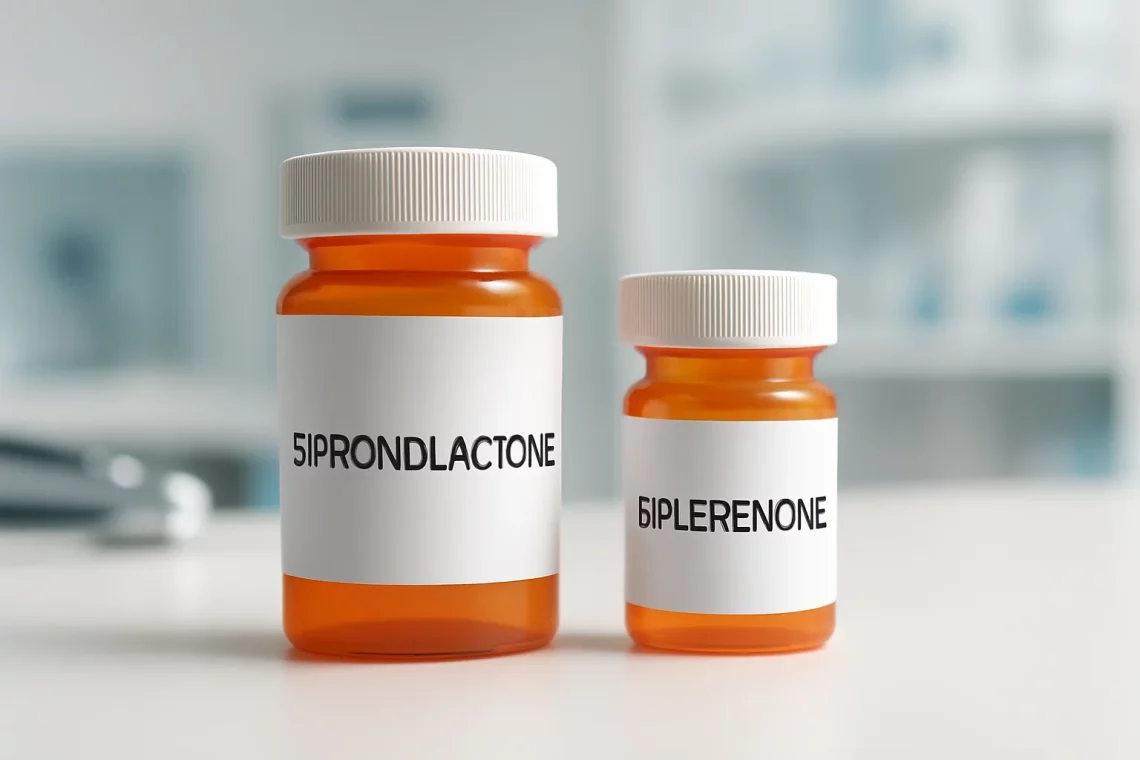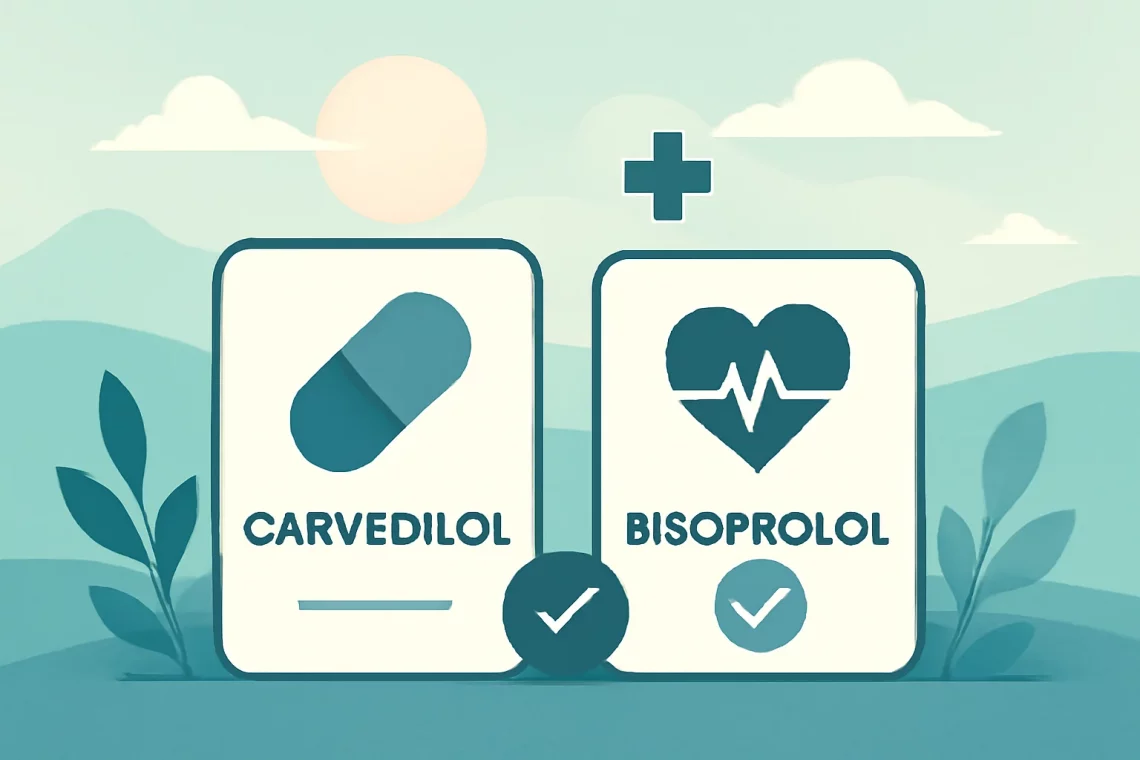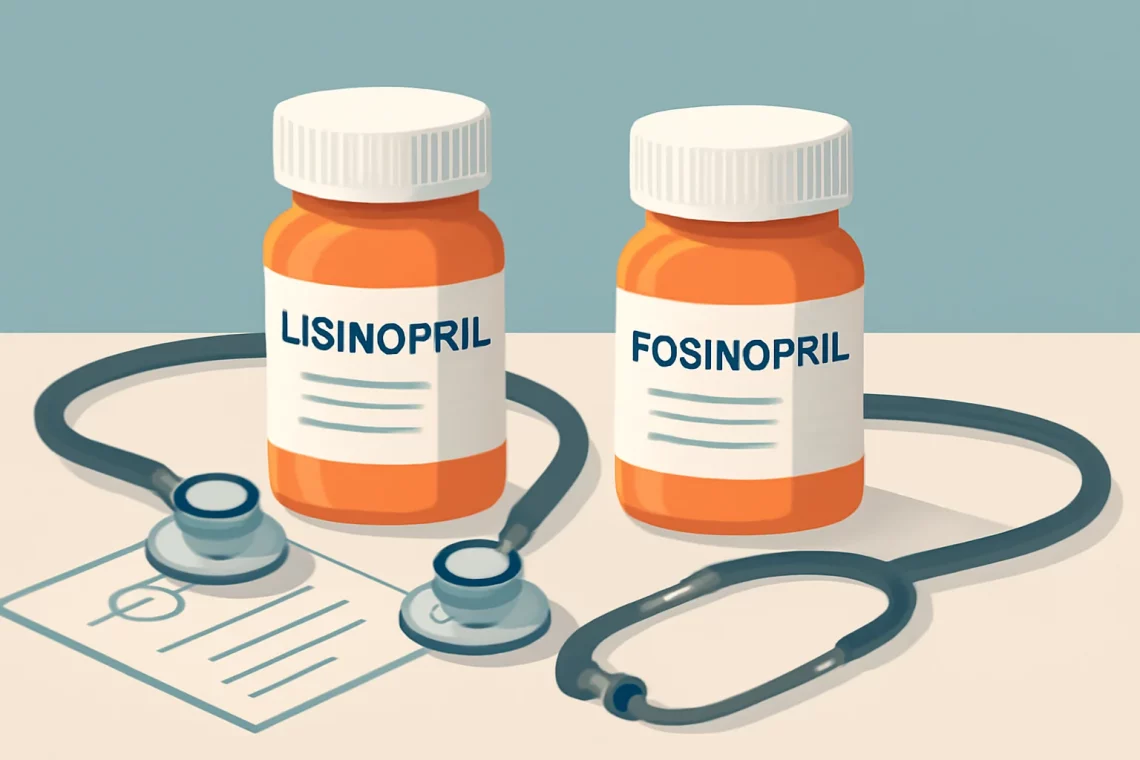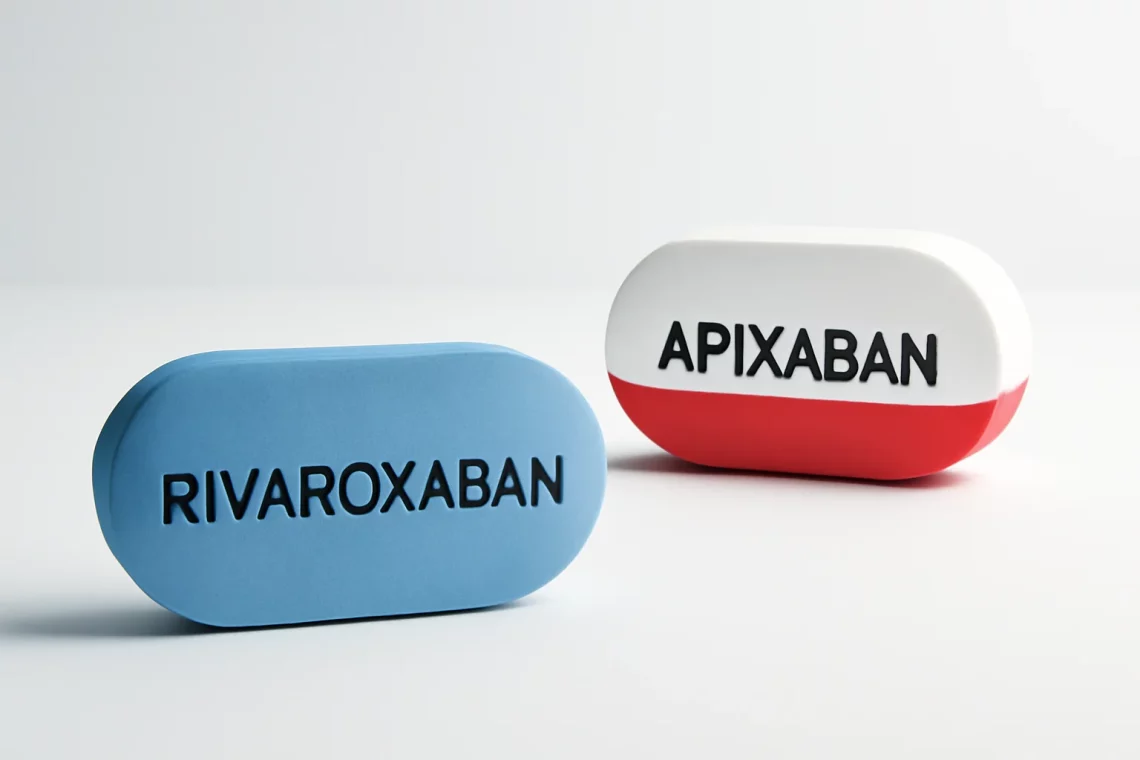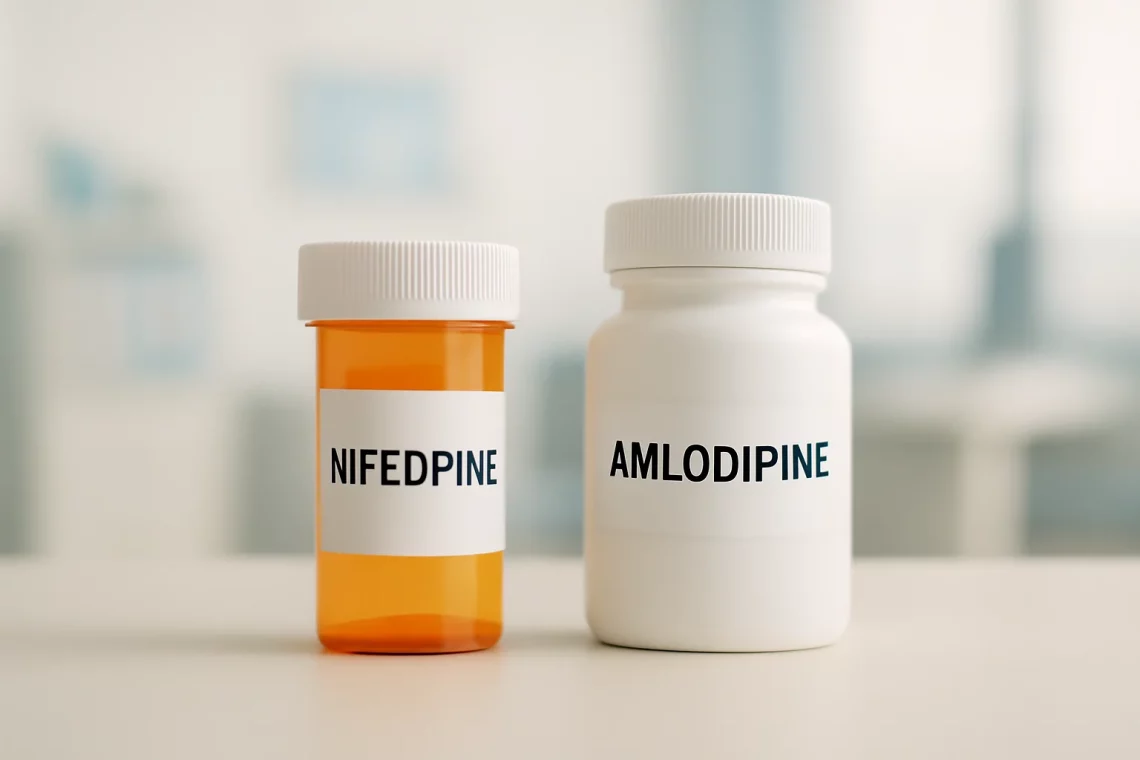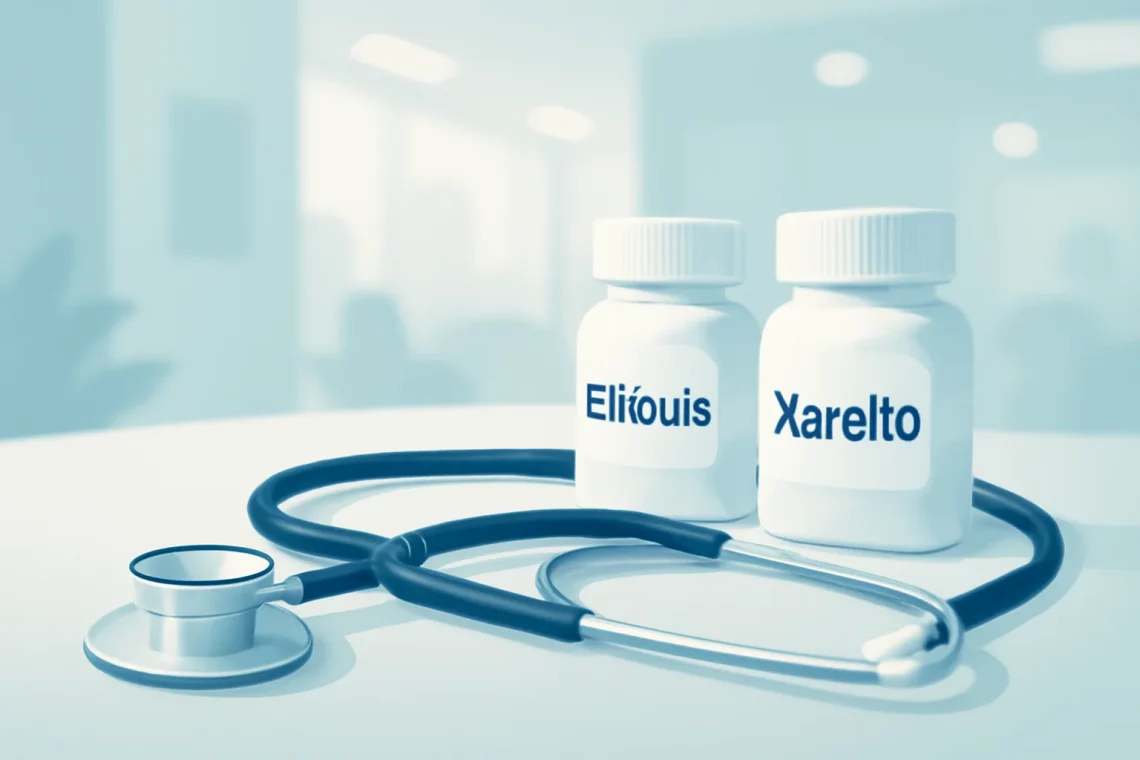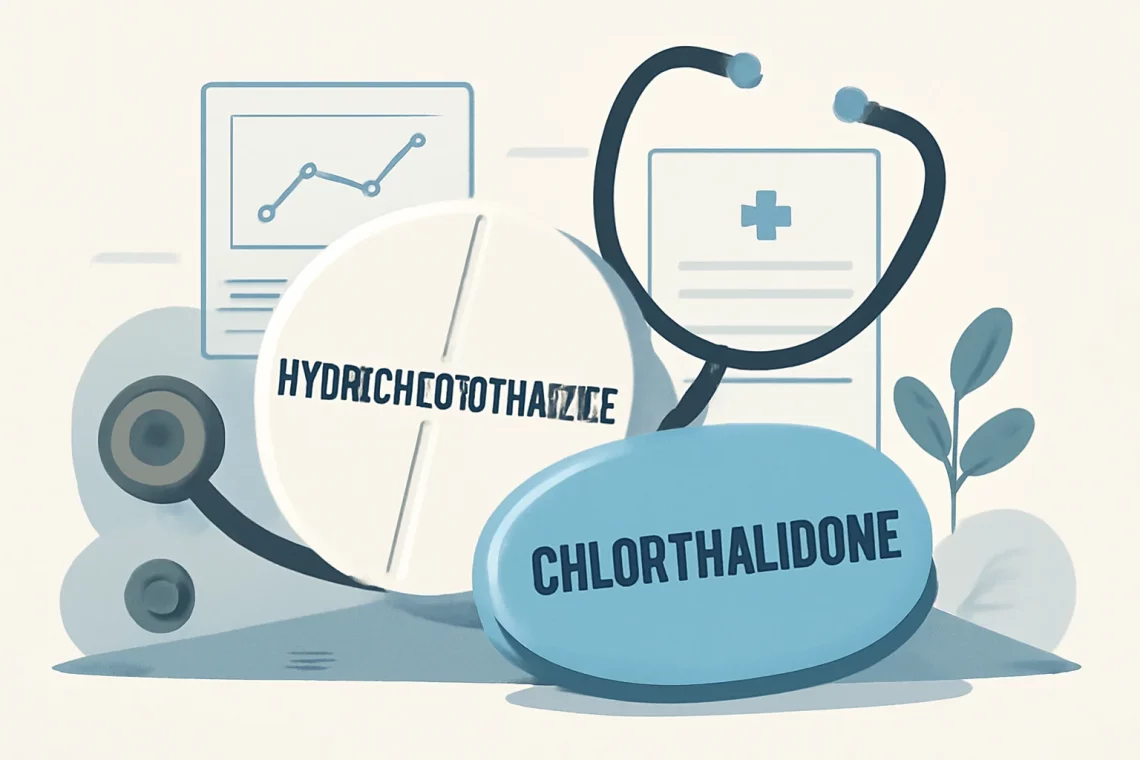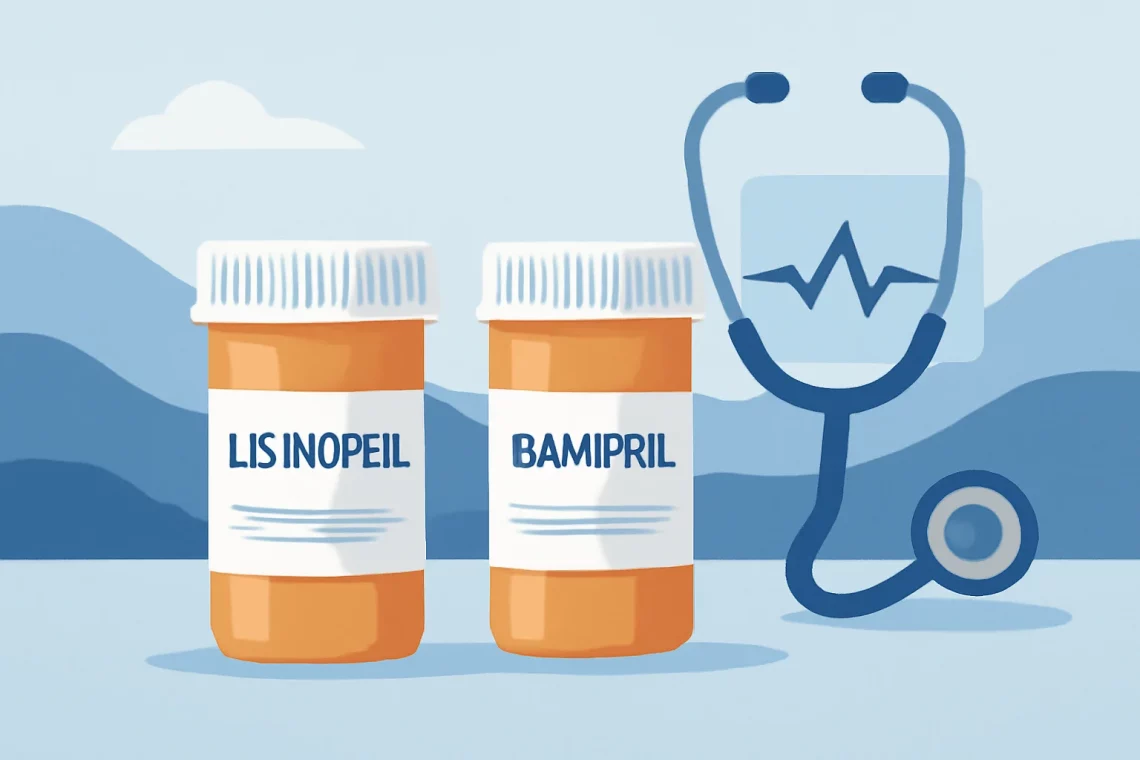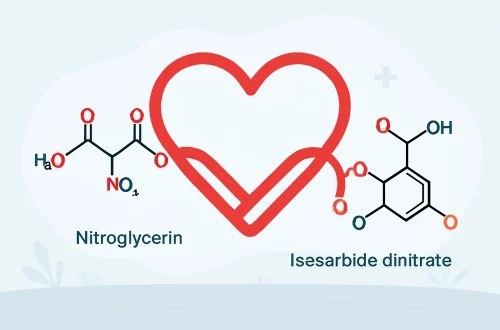-
Spironolactone vs Eplerenone: Which is Right for You?
Spironolactone and eplerenone are two medications that play significant roles in the management of various medical conditions, particularly those related to cardiovascular health and fluid retention. They belong to a class of drugs known as aldosterone antagonists, which are primarily used to treat conditions such as hypertension, heart failure, and certain hormonal disorders. Both of these medications work by inhibiting the effects of aldosterone, a hormone that regulates sodium and water balance in the body, leading to increased excretion of sodium and water while retaining potassium. Understanding the differences and similarities between spironolactone and eplerenone can be crucial for patients and healthcare providers alike. While they share a common mechanism…
-
Carvedilol vs Bisoprolol Which Beta-Blocker Is Right for You?
Carvedilol and bisoprolol are two prominent medications commonly prescribed for managing cardiovascular conditions, particularly hypertension and heart failure. As beta-blockers, they share similar mechanisms of action but differ in their specific applications, side effects, and efficacy profiles. Understanding these differences is essential for both healthcare professionals and patients to make informed decisions about treatment options. In recent years, the focus on cardiovascular health has intensified, with a growing emphasis on personalized medicine. This approach tailors treatment plans to individual patient needs, making it crucial to compare various medications. Carvedilol is known for its ability to provide additional benefits beyond heart rate reduction, such as vasodilation, which can lead to improved…
-
Lisinopril vs Fosinopril: Which ACE Inhibitor Is Right for You?
Lisinopril and fosinopril are both medications belonging to a class known as angiotensin-converting enzyme (ACE) inhibitors. These drugs are primarily used to manage high blood pressure, but they also play a crucial role in treating heart failure and other cardiovascular conditions. As our understanding of hypertension and heart health has evolved, so too has the development of medications designed to effectively control these issues. The need for effective management of cardiovascular health has never been more critical, given the rising prevalence of hypertension across the globe. Understanding the differences and similarities between medications like lisinopril and fosinopril can empower patients to make informed choices about their treatment options. Both medications…
-
Rivaroxaban vs Apixaban: Choosing the Right Anticoagulant for You
When considering anticoagulants for the prevention and treatment of thromboembolic diseases, Rivaroxaban and Apixaban stand out as two of the most discussed options. Both medications belong to a class known as direct oral anticoagulants (DOACs), which have revolutionized the management of various conditions such as atrial fibrillation, deep vein thrombosis (DVT), and pulmonary embolism (PE). These medications work by inhibiting specific factors in the blood coagulation pathway, ultimately reducing the risk of blood clots. The choice between Rivaroxaban and Apixaban often depends on multiple factors, including patient-specific characteristics, underlying health conditions, and potential drug interactions. Both drugs offer distinct advantages and disadvantages that can impact their effectiveness and safety profiles.…
-
Nifedipine vs Amlodipine: Which is Better for Blood Pressure Management?
Nifedipine and amlodipine are both medications that belong to the class of calcium channel blockers, which are primarily used in the treatment of hypertension and angina. These drugs work by inhibiting the influx of calcium ions into the smooth muscle cells of the heart and blood vessels, leading to vasodilation and a subsequent decrease in blood pressure. As cardiovascular diseases continue to be a significant concern worldwide, understanding the nuances between these two medications can empower patients and healthcare providers to make informed decisions regarding treatment options. The choice between nifedipine and amlodipine may depend on various factors, including the specific health conditions of the patient, their medical history, and…
-
Eliquis vs Xarelto Which Anticoagulant is Right for You
Anticoagulants play a crucial role in modern medicine, especially for patients at risk of developing blood clots. Two of the most commonly prescribed anticoagulants are Eliquis (apixaban) and Xarelto (rivaroxaban). Both medications belong to a class of drugs known as direct oral anticoagulants (DOACs) and are used to reduce the risk of stroke and blood clots in patients with conditions such as atrial fibrillation or venous thromboembolism. The choice between Eliquis and Xarelto can be a significant decision for both patients and healthcare providers. Factors such as efficacy, safety profiles, dosing regimens, and potential drug interactions must be considered. Each medication has its unique characteristics that can influence treatment decisions…
-
Lisinopril vs Captopril: Which ACE Inhibitor Is Right for You?
Lisinopril and captopril are two widely used medications for managing hypertension and heart failure. Both belong to a class of drugs known as angiotensin-converting enzyme (ACE) inhibitors, which play a crucial role in regulating blood pressure and fluid balance in the body. While they share some similarities in mechanism and purpose, there are significant differences in their pharmacokinetics, side effects, and overall efficacy. Understanding these differences is essential for patients and healthcare providers alike, as the choice between the two can significantly impact treatment outcomes. As we delve deeper into the characteristics of lisinopril and captopril, we will explore their mechanisms of action, common uses, potential side effects, and considerations…
-
Hydrochlorothiazide vs Chlorthalidone: Choosing the Right Diuretic
High blood pressure and fluid retention are common health challenges faced by many individuals. Among the various treatment options available, thiazide diuretics, such as hydrochlorothiazide and chlorthalidone, have gained popularity due to their effectiveness in managing these conditions. Both medications work by promoting the excretion of sodium and water through the kidneys, helping to lower blood pressure and reduce swelling. However, despite their similar uses, these two drugs have distinct properties that can influence their effectiveness, side effects, and suitability for different patients. The choice between hydrochlorothiazide and chlorthalidone often depends on various factors, including the patient’s overall health, the presence of other medical conditions, and individual responses to treatment.…
-
Lisinopril vs Ramipril: Which Blood Pressure Medication is Right for You?
High blood pressure, also known as hypertension, is a common condition that affects millions of people worldwide. It is often referred to as a “silent killer” because it may not present any noticeable symptoms until serious complications arise. Managing hypertension is crucial to reducing the risk of heart disease, stroke, and other health issues. Various medications are available to help control blood pressure, and two of the most commonly prescribed classes of these medications are ACE inhibitors. Lisinopril and Ramipril are both effective options within this category, but they have distinct characteristics, benefits, and potential side effects. ACE inhibitors work by relaxing blood vessels, allowing blood to flow more freely,…
-
Metoprolol vs Toprol XL: Key Differences and Similarities Explained
Metoprolol and Toprol XL are frequently discussed in the context of cardiovascular health, particularly for individuals managing conditions like hypertension and heart disease. Both medications belong to a class of drugs known as beta-blockers, which work by blocking the effects of adrenaline on the heart and blood vessels. This action reduces heart rate, blood pressure, and strain on the heart, making these medications effective for various heart-related issues. The distinction between Metoprolol and Toprol XL often confuses patients and healthcare providers alike. While they share a common active ingredient, their formulations and dosing regimens can differ significantly. Understanding these differences is crucial for patients who are prescribed these medications, as…
